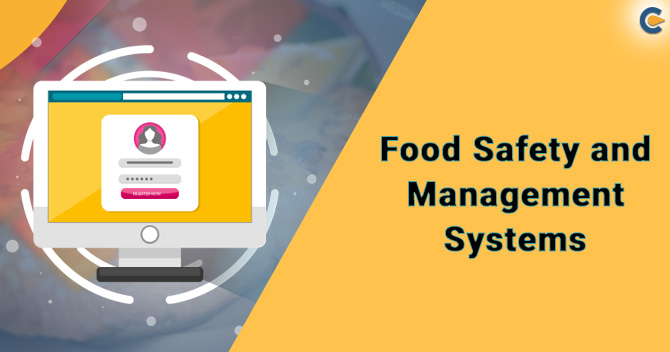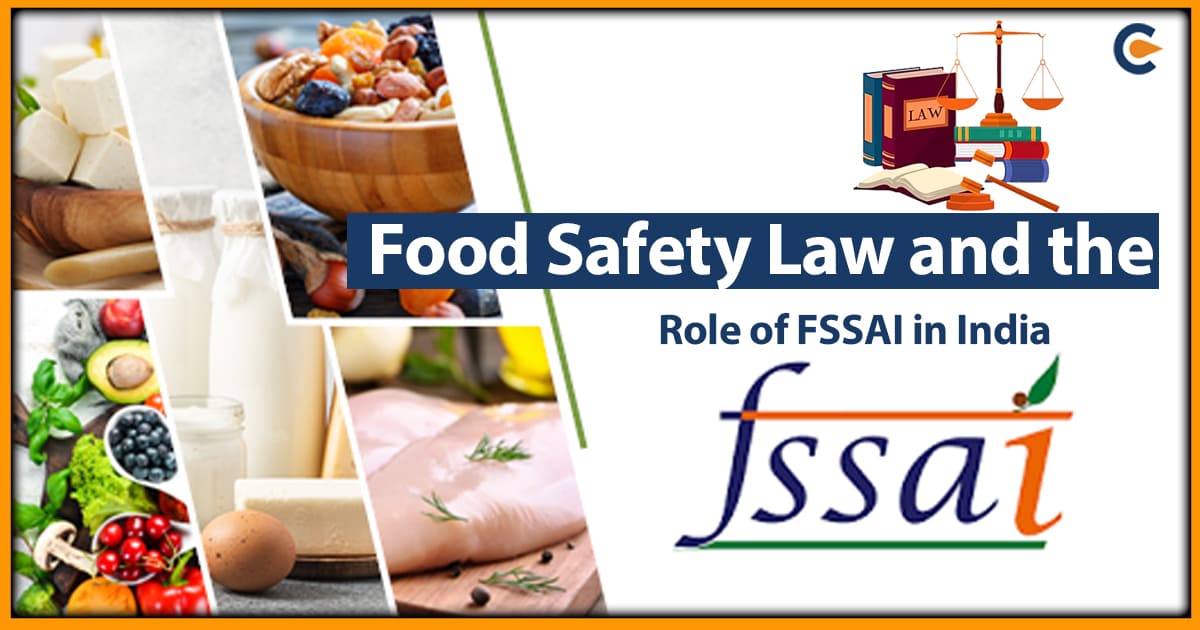The Food Safety and Management Systems is a collective set of food-related standards set up to monitor as well as direct aspects of food safety. Known as FSMS, it helps the food business operators of India win the customers’ trust and serves them in an effective and efficient manner. Having the FSMS Certification in the hands of food business organization is an indication that the food business organization is following the standards under Food Safety and Management Systems.
The phenomenal rise of the food industry in India has made it join the league of fastest-growing sectors. In recent times, this sector has fascinated various food business enthusiasts as it holds immense possibilities in the present and in the years to come. Modern consumers are familiar with the do’s and don’t for food business operators and food safety guidelines, along with their rights in this regard. That’s the reason why the expectations of consumers have increased to a great extent.
All the organizations associated with the food industry must understand their moral responsibility to ensure consumers’ safety and their well-being. FSSAI, the governing body that grants food safety certifications, points out that food safety refers to proper control on the existence of food-related issues and danger concerning food during consumption time. Food safety is all about the involvement of the efforts of several parties that actively participate in food processing. Thus, we can say that it’s not a single-stage control.
The tool of food safety and management systems make sure that food safety will be there at your premises. Various international organizations that offer FSMS are ISO 22000, FSSC 22000, Hazard Analysis and Critical Control Point (Regarded as HACCP), and Food Safety System Certification.
FSSAI License & Food Safety and Management Systems
Submission of the Food Safety and Management Systems plan at the time of filing for the FSSAI license or the renewal of the FSSAI license is mandatory. A product of the Ministry of Health and Family Welfare, FSSAI, being the supreme food authority in India, is liable for food safety in the nation.
Rooted under the ambit of the Food Safety and Standards Act of 2006[1], FSSAI is the apex body that sets science-based standards to regulate food products on the various stages, such as production, sales, distribution, and storage as well as imports. There is a provision of voluntary granting of certification following the FSS Act, 2006. Furthermore, it ensures the appropriation of proper processes of manufacturing that are hazard analysis, maintaining cleanliness, high on hygiene, and critical control point. Thus, when filing for FSSAI license or renewal of FSSAI License the same, submit a Food Safety and Management Systems plan.
Food Safety and Management Systems Certification
The bodies that are involved in serving the certifications related to the Food Safety and Management Systems scheme are HACCP, FSSC, and ISO. Even there are several other bodies available, but their approach is different from these bodies in many ways. The key elements of Food Safety Management Certifications are-


Level of Transparency
Detailed information related to food management systems, along with their certifications, will be available on their websites. It comprises the information concerning requirements of the scheme, accelerating body names, decisions that the board has taken, and the certification bodies.
FSSC Audit Approach
Primarily, the focus of the audit is on the effectiveness of management as well as commitment. It looks at the scope of improvement in various areas and brings improvement and upgrade things. FSSC audit takes place in the ocean of depth, and thus, it is a long process. It involves two stages. Food Safety Management System review, as well as the HACCP plan in-depth review, are part of the stage 1 audit.
Integrity Program for Performance Reviewing
The integrity program of FSSC 22000 is into reviewing the performance of several contracted certification bodies. All licensed certification bodies should match pace with the requirements of FSSC requirements so that the integrity of audit can be achievable. It ensures confidence in the process of certification.
Encompassing Food Safety
All organizations interested in integrating quality in their food management systems should attempt to follow the requirements directed within the ISO 9001. ISO 22000 provides the companies with the power to ensure their customers that the Food Safety Management System associated with them is at the right place.
This internationally recognized standard provides technical stipulations for PRPs looking after the food safety. Standards of all management systems are in the same line most of the time, and it follows an identical format; thus, integrating such a system is not a significant issue. Integrating aspects like environment via ISO 14001 and corporate responsibility via SA 8000 is a possibility.
Supply Chain Approach
ISO, along with numerous supply chain trade organizations are working on the development of their technical specifications. On the other hand, the expanse of FSC 22000 is confined to food products manufacturing, feed manufacturing, retail, animal production, food ingredients, materials used in food packaging, storage, transport, and catering as well. ISO is preparing to bring in technical specifications for PRPs in every food supply chain.
Main Elements of FSSC 22000 Certification
Regardless of the dimension and complexity factor, FSSC 22000(expanded as the Food Safety System Certification) for food safety or quality management of food is an internationally recognized scheme by Global Food Safety Initiative and other accreditation bodies for food safety certification applicable in the food chain of all the organizations. Associations like GMA and CIAA are in favour of this scheme.
- In order to manage risks in a better manner, a sound health analysis takes place. It helps in the improvement of food safety efficiency as well as effectiveness.
- The usage of technical specifications must fit the needs of retailers for due diligence, together with issues of similar types.
- Along with the integration of the entire management system of the company, a compelling management well-organized framework is presented. It must get coordinated with different standards, such as ISO 14001 and ISO 9001.
Main Elements of ISO 22000:22005 Certification
- The management system should be in the line of compatibility with the ISO 9001.
- It is mandatory for any organization to make adjustments to ISO 22000:2005 as a well-planned decision. It helps in monitoring the critical control point as well as in ascertainment of the right actions taken.
- Interactive communication has an influential role to play as it is necessary to make sure that all expected hazards get identified at the right time and stay under proper control at all the steps in the food chain.
Essential Elements of HACCP Certification
- Establishment of record-keeping along with documentation
- Setting up of relevant corrective actions that may take place
- Forming critical limits for critical control points
- Organizing health analysis
- Installing a system of monitoring for every critical control point
- Setting up procedures of verification
- Staving off probable health hazards by proper tracking along with controlling every critical control point of the process of food production
Food Safety and Management Systems Plan
- Food Safety and Standards Act of 2006 insists that all the food business operators should necessarily keep an FSMS plan with them.
- Although the food business has managed a food safety certification from FSSC, ISO, or HACCP, there will be a requirement of the FSMS plan.
- Those businesses that have acquired these certificates can smoothly proceed ahead for the preparation of FSMS plans.
- Complexities associated with the Food Safety and Management Systems plan would get decided by the nature of business.
- The creation of the FSMS plan doesn’t take the type and size of the food business into consideration.
- Most of the retailers and manufacturers have a faith that customers will check the certification before going for the procurement of the product.
- It will assist in the prevention of the illness. In the last few years, certifications have become popular. When the protection of the consumer is at stake, a standardized system becomes mandatory for assuring safety along with the integrity of all the links in the food chain.
Read our article:Enforcement of the FSS ACT – An Overview
Food Safety and Management Systems Documentation
We are presenting the stepwise process of how the documents would get filed for the application of the FSSAI license or the renewal of the same.
Step 1- The process of endeavoring FSSAI License or renewal of the same initiates with the collection of the documents. FSMS program in India girds the documents listed below.
The Entire Plan of FSMS
The FSMS Plan is a basic set of documents incorporating various information related to the recognized hazards and steps associated with operation, critical limit, controlling methods, corrective actions apart from measures suggested, record keeping as well as ways to monitor the critical threat.
Self-Inspection Checklist
Persons who get recognized as an authorized person need to check the inspection points on a regular basis and consider it as observations. Besides this, on the basis of current observations from the checklist, corrective actions will be taking place. The base of all these things is the FSMS plan. There is a requirement for it to get submitted as a supplement to the Food Safety and Management Systems plan.
Flow Chart of the Process
The flow chart of the process signifies the process that the food business has taken up. It makes the process easily understandable and also helps in clarifying the flow of activities.
Step 2- Food business operators will wait for guidance after the documents get organized in the right manner for the preparation of essential documents. One thing that is mandatory to count is that the preparation of documents should take place as per the prescribed format shown in the Food Safety and Standards Act rules and regulations.
Step 3- It’s better to turn up to FSSAI guidance documents in the urge to prepare the relevant documents. The FSSAI guidance documents that we are referring here are-
- Schedule 4 concerning Implementation Guidance along with Tools
- Organizing an assessment of food safety along with the development of a Food Safety and Management Systems plan
- Also, there is an option to refer the FSMS documents samples
Step 4- As per the demand of the case, the application would get submitted for approval or renewal. Furthermore, the document would go through the validation process by the particular Food Safety Officer or other designated officers.
The overall process of documentation depends upon the business type. Food safety is free from business type or size. Although the food business operators are not technically sound enough, professional experts at Corpbiz would help you in implementing the requirements on the business type within the time range of 1-7 days. The implementation part of the program will make sure the top management involvement, along with their dedication.
Importance of Food Safety and Management Systems (FSMS)
- The superior food regulatory body, Food Safety and Standards Authority of India, i.e., FSSAI has devised various regulations encompassing the FSMS programme that all food business operators need to follow for sure.
- Food safety is driving force behind the FSMS programme as it assists in ensuring that all the food that food business operators provide is safe as well as fit for consumption by a human being.
- According to the International Standard- ISO 22003, the definition of Food Safety and Management Systems is a group of interrelated elements through which objectives and policies get set up. In order to attain the food safety objectives, policies got used to regulate as well as command the business organization.
- The establishment of several food safety certifications would provide strength to the system for ensuring food safety.
- FSMS system is a set of methods in India that are connected with each other. Various controls and procedures laid down by FSSAI got included in the order.
- Specified points under the FSSAI regulations are adequate hygienic practices, critical control points, and hazard analysis.
- A combination affirms that food is fit for consumption by human beings as well as valid for food businesses to adopt the regulatory systems.
Conclusion
If appropriately implemented, the Food Safety and Management Systems can prevent the contamination of food and control health hazards and associated risks. Food safety is vital for all the brands that crave to maintain their positive brand image. This system ensures the safest and highest quality product possible. In the end, we must say that if you are in the midst of filing for the FSSAI license or renewal of FSSAI, you must mandatory submit the FSMS plan.
Read our article:FSSAI Rules and Regulations for Food Sector











